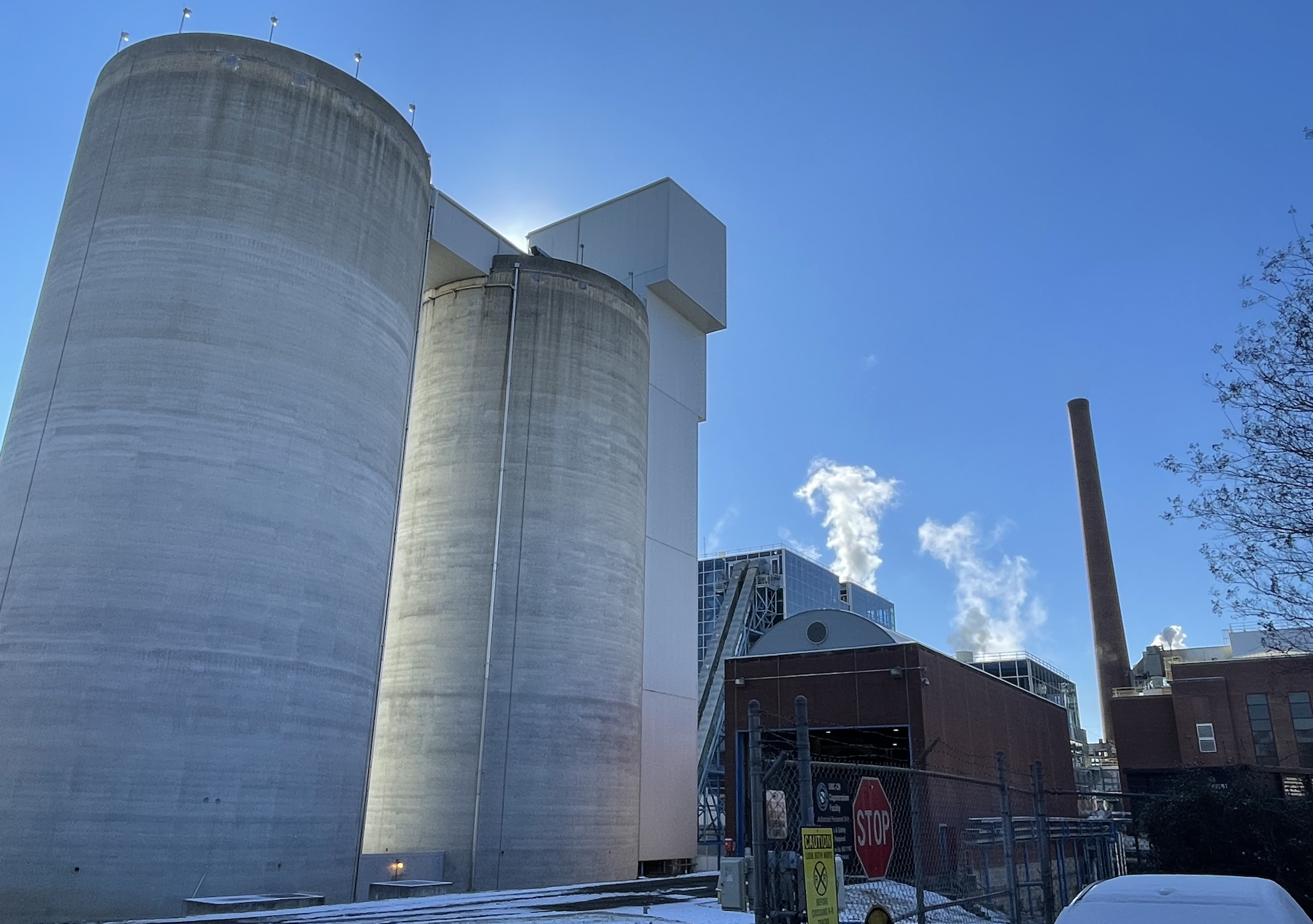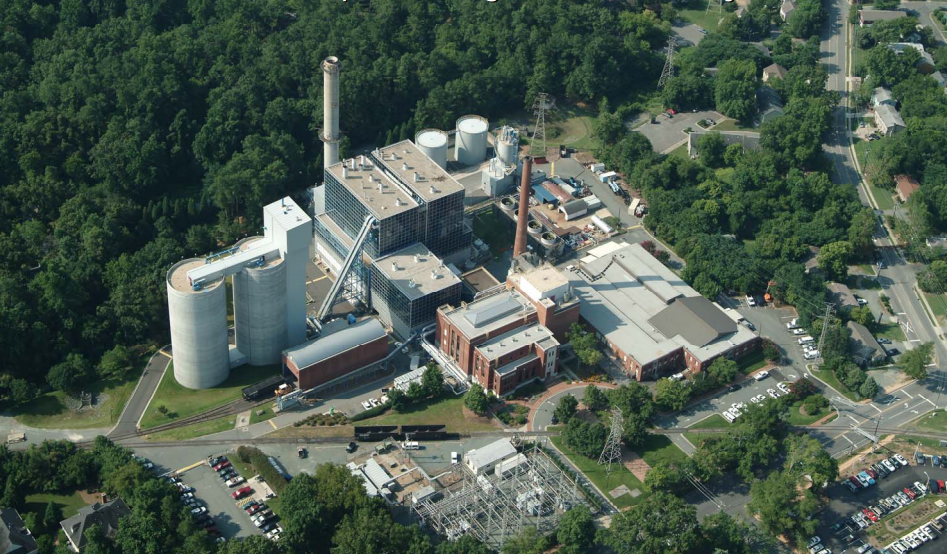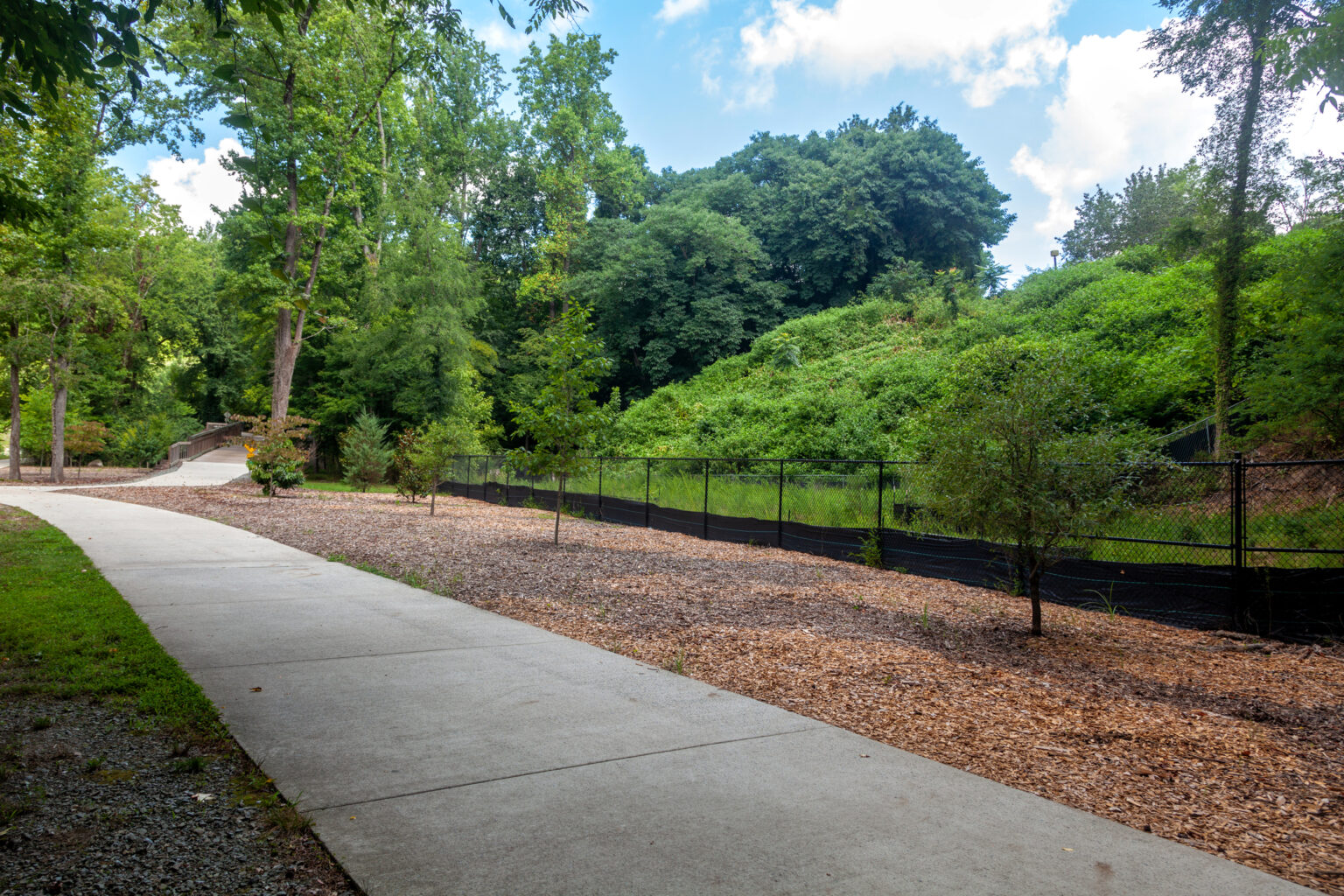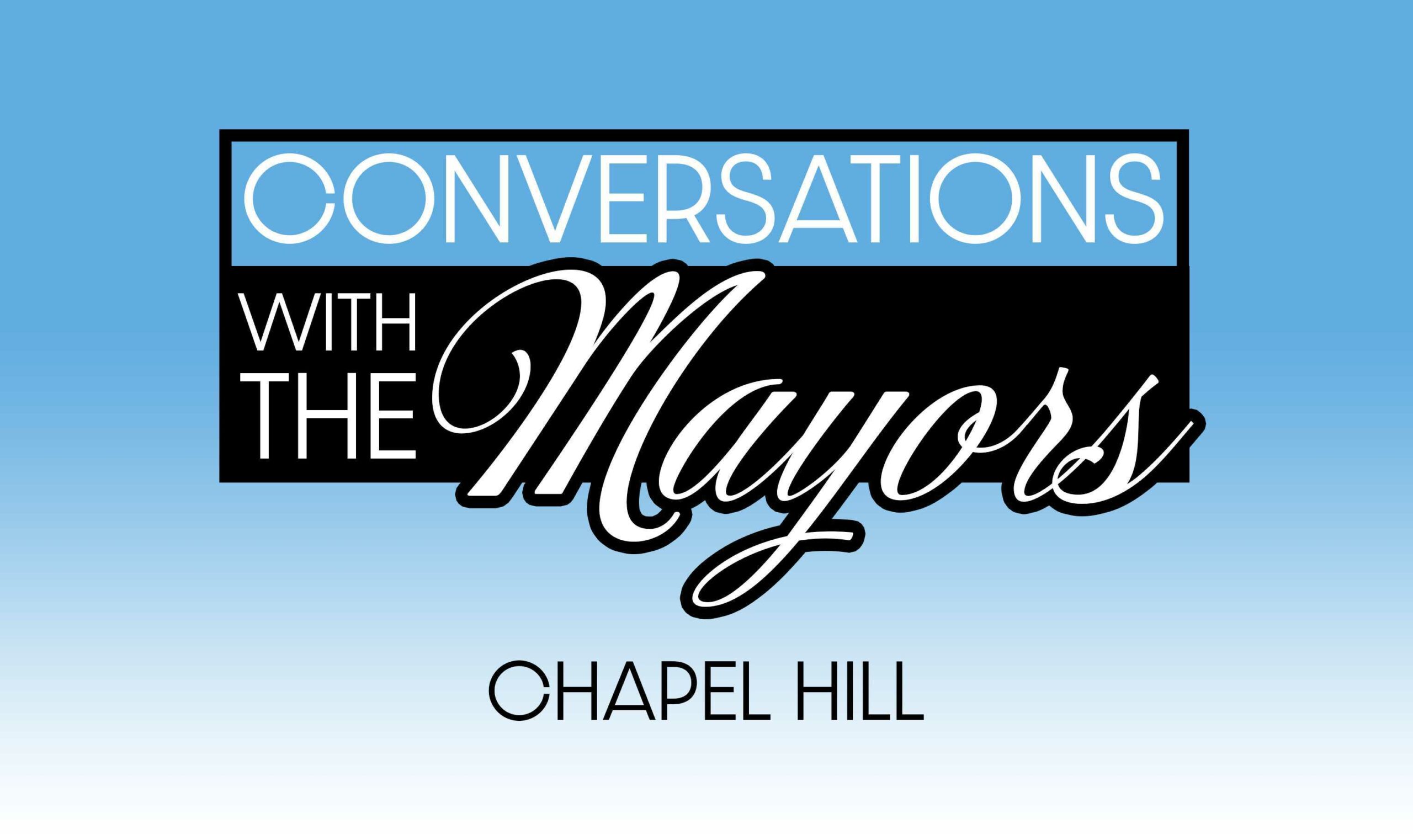The Chapel Hill Town Council held its first meeting of 2024 this week, which also represented the first business meeting with a new council. Chapel Hill Mayor Jess Anderson joined 97.9 The Hill’s Andrew Stuckey for her weekly “Conversations with the Mayors” segment the following day and shared some highlights from the meeting — and other recent news from around town.
Below is a transcript of Anderson’s conversation with Stuckey, which has been lightly edited for clarity.
Andrew Stuckey: We had the Chapel Hill Town Council meeting last night. How did that go?
Mayor Jess Anderson: It went well. It was our first meeting of the new year, it was our first meeting with our new members. It was a work session at the library. It went really well… I appreciated the chance to talk about some of the important topics that we’re going to be tackling for the rest of the season.
Stuckey: With the new members, does a first meeting like that feel like a beginning?
Anderson: It does. It was nice to be in an old, familiar space, which is Room B of the library. But it definitely is a different dynamic. The wisdom about elected bodies is that whenever there’s even one new member, it’s a whole new board — and I think with three new members, it is even more the case, But it was great, it was nice to have folks together and get to work. And we’ve talked, we’ve had one-on-one meetings, or had some conversations. It was good for us all to be there and for the public to be with us and to get down to business.
Stuckey: What stood out to you at that meeting? What did you find as the most impactful thing that happened last night?
Anderson: I think the most important thing that we talked about was our rewriting our rules initiative, which is our land use management ordinance (LUMO) rewrite. I know some people have already fallen asleep now that I’ve said that…
Stuckey: Gotta get fired up for LUMO!
Anderson: It could not be more exciting! It’s really rewriting the code that determines how land gets used and developed throughout our town. It’s a big deal and it impacts all of our daily lives, but it is different than what we usually do. Even though it’s been underway for a couple years, much of the work to date has been done by staff and they’ve been looking at our code. It’s really complex and it’s very technical. We have an outside consultant that’s helping us because it’s that technical. Now, we’re moving in earnest to the actual rewrite. They’ll be providing us with information on how the code can be changed to get us better outcomes, which is what we’ve asked for. Our code is way out of date. And so, this is a great opportunity to get better development, better projects, better process. That’s the exciting part.
Stuckey: So where in this process do you feel like we are? What’s the next step, and what’s the timeline on the end game here?
Anderson: The work is expected to be completed by next November. And since rewriting the code is very different than other projects, the public engagement process will be different. But we dipped our toes into policy discussions last night. We tackled missing middle housing in Chapel Hill. The staff’s goal last night was to gauge our interest as a body in having them explore some issues further. A reminder that we don’t vote in these meetings and it’s just asking staff to bring things back to regular meetings. So, there’s plenty of time for the public to engage and to comment — we haven’t done anything yet. One of the things that I indicated as a body, is that we were interested in ways to hone in on specific places in town. Like our transit corridors where we’re missing middle housing, like triplexes cottage courts that can allow people to live and make use of our greenways and our transit network. We also gave a thumbs-up to exploring some other ideas like allowing additional housing to be added to flag lots — which is a property that has a really thin strip at the street and a much bigger property in the back. We’re very restrictive right now, and those are places where we could get more infill. Another thing that the council signaled an interest in was a deeper dive into how we’ll be integrating environmental considerations into our decisions and, ultimately, the code. In the next few months, we’ll be discussing environmental housing and some various big picture topics so that staff can take it back and code accordingly.
Stuckey: Another thing I wanted to discuss is we have an update on the situation at the 828 Martin Luther King Jr. Boulevard property, where the current police station is and the plan going forward on the coal ash. What’s the latest on that?
Anderson: Yeah, our communications team and our manager put out a press release yesterday. For those who may not be familiar, this is something that we’ve been working on for many, many years now. And of course, the health and safety of our employees and the community is always the top priority when we have these conversations. Currently, we’re in the process of moving the police department, which is currently there, to the Parkline building on Fordham. What our Town Manager Chris Blue has shared is we’ve recently had two communications from the [Environmental Protection Agency.] The first is an updated risk assessment about coal ash and the other is the agency’s decision to accept a petition from an out-of-town group to do a preliminary assessment of the site. According to the EPA, that assessment could take up to a year, and this is new information. Our environmental sustainability staff has been working to review it with the state’s Department of Environmental Quality and the EPA to evaluate what these two things mean in terms of what we need to do to make the site safe permanently and also when we can begin to take action — which is what we are eager to do.
Stuckey: So what does a preliminary assessment mean? Do we know what will actually happen next? And when?
Anderson: It’s a great question. I am not an environmental policy expert, but my understanding is that they received a petition from an out-of-state group, and this is them saying, ‘We will look into that petition, we’ll investigate whether we would take it further or whether the town would qualify.’ They’re not taking any action. It’s just a very preliminary step to even evaluate that petition and the legitimacy of it or not.
Stuckey: And in the meantime, the more immediate action for the town, as you mentioned , is that the police department will be moving to the Parkline building. Do we have any update on the timeline on that?
Anderson: It is pretty imminent, but they are going through the process of inspections and contracts and all the good things. I think we’re talking months not years, if that helps narrow it down. I don’t know exactly when they’re going to get through all the hurdles in terms of coming to an agreement with the owner, and in terms of a lease and all that stuff. But it is very imminent.
Stuckey: Any other thoughts on 828 MLK?
Anderson: Well, just a couple kind of things to know. We’ve been planning to review a draft remediation plan as part of the Brownfields agreement — which is a state-level or DEQ-level agreement — this spring. So, my hope is that we can get an answer back from the EPA sooner than a year because we’re kind of in a holding pattern while we wait for that. In the meantime, we are continuing to do testing and monitoring at and around the site, and that information is always made available to other agencies and the public. We’ll keep everybody apprised as we know more. But among our concerns in the past have been how to conduct a cleanup without causing harm to the nearby neighborhoods and creeks — as well as where the ash and debris would go, because we’d be putting it in someone else’s backyard. These are complex issues, it’s been a tricky community conversation, but we always have experts guiding us and we are following the science.
Stuckey: Is there anything else that you wanted to talk about before we wrap up?
Anderson: I have a couple quick things… first, the People’s Academy. For folks who are looking to learn more about the town [and] meet new people, we’ve just opened up the registration process for this year’s People Academy. The program runs from February 22nd to March 23rd this year. Sessions are on Thursdays and Saturdays, and you get to take tours, talk with directors from the town departments. It’s pretty cool and interesting, and I get to welcome folks as mayor. We provide meals and translation services to make sure that it’s available to everyone. We’ve heard really great things from participants — so it’s not just us, everyone else thinks this program is awesome. Also: the IFC is asking for some assistance with their cold weather pop-up shelter. The forecast is calling for several more really cold nights, so they are asking for volunteers. If you are available to work in the morning or the evening or help launder blankets, they’ve been circulating an online signup form. So if you’re available, sign up at their website please.
Stuckey: I appreciate the time, and I’ll look forward to our next conversation.
Anderson: See you next time!
Listen to ‘News on The Hill each week to hear the latest Conversations with the Mayors! The elected leaders of the Chapel Hill, Carrboro, Hillsborough and Orange County governments join 97.9 The Hill to discuss the latest stories from around town and our community. Listen to all episodes here!
Conversations with the Mayors is presented by The Chamber for a Greater Chapel Hill-Carrboro.
Chapelboro.com does not charge subscription fees, and you can directly support our efforts in local journalism here. Want more of what you see on Chapelboro? Let us bring free local news and community information to you by signing up for our biweekly newsletter.









